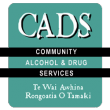Home
Reducing harms
When you're concerned
Benzodiazepines
Benzodiazepines – Harm reduction tips
- Unless prescribed no use is the safest choice
- Take only as prescribed because the risk of physical dependence increases if benzodiazepines are taken regularly
- We strongly advise not taking benzos long term as, over the long term, benzo use can result in a person experiencing the very problems for which they sought help in the first place e.g. sleep disturbances, depression, anxiety and irritability
- People who do become dependent or who use benzos for more than a few months should not stop taking them without medical advice and support because they are likely to experience serious withdrawal symptoms. Seek advice from your GP or call CADS
- Avoid taking benzos with other depressants like alcohol, opioids, other sedatives, barbiturates and antihistamines (such as anti-allergy medications) as this can lead to coma and death
- Benzos slow reaction times, impair concentration and reduce alertness so don't drive or operate equipment or machinery
- Avoid injecting crushed tablets or melted down gel capsules; this is extremely dangerous and sometimes fatal. The chalk in tablets causes collapsed veins and can lead to infection and abscess. Injecting gel capsules can also be fatal when the gel solidifies inside the blood vessels.
- Avoid benzos during pregnancy as they may increase the risks of the birth defects. Just as adults taking benzos may experience side effects so too may the unborn baby e.g. sedation, decreased muscle tone (floppiness), and breathing problems
- There are also some reports of benzodiazepine withdrawal occurring in newborns exposed to benzodiazepines in utero. Symptoms of benzodiazepine withdrawal include irritability and sleep disruption.
- Benzos can pass from mother to baby through breast milk which may cause drowsiness and slow response times. When the mother stops using the benzo the baby may also experience withdrawal symptoms
- The decision to take benzos during pregnancy should be discussed with your prescriber ideally before attempts to conceive.
